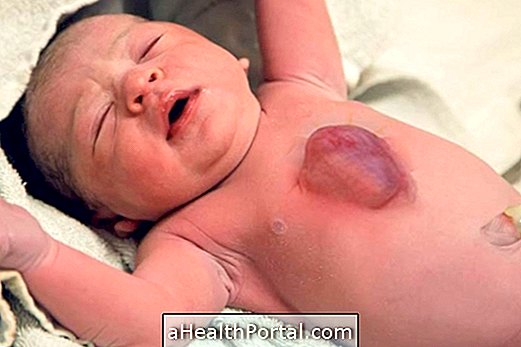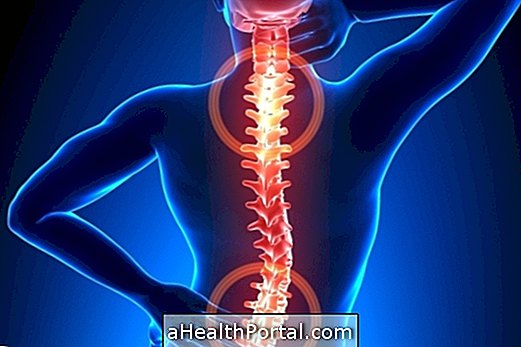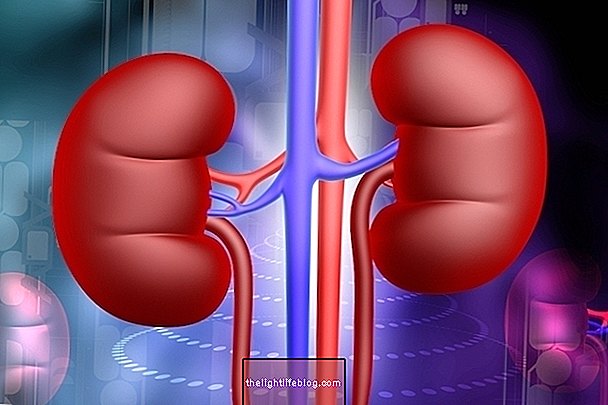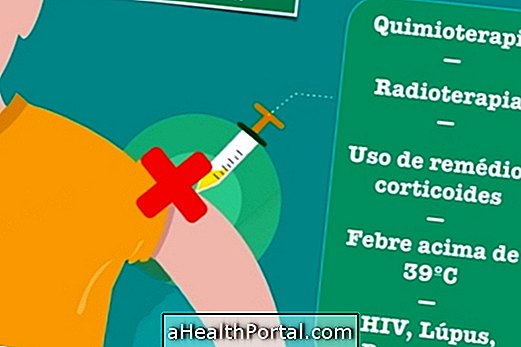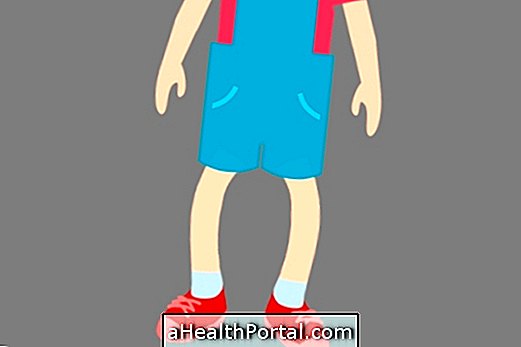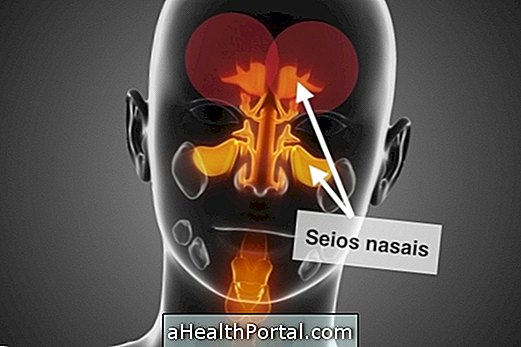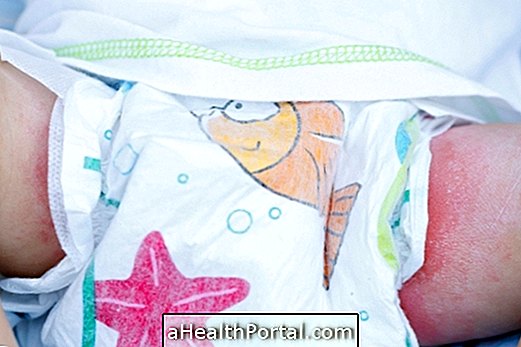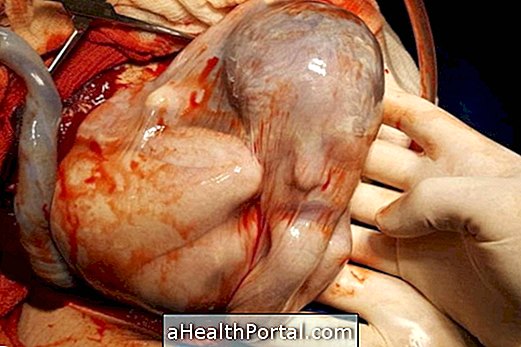Treacher Collins syndrome is a rare genetic disorder characterized by poorly shaped head and face, leaving the person with drooping eyes and a decentralized jaw.
Because of poor bone formation, people with this syndrome may have very difficult hearing, breathing and eating, however, Treacher Collins syndrome does not increase the risk of death and does not affect the central nervous system, allowing development if given normally.

Causes of Treacher Collins syndrome
This syndrome is caused mainly by mutations in the TCOF1 gene, located on chromosome 5, which encodes a protein with important functions in the maintenance of cells derived from the neural crest, which are the cells that will form the bones of the ear, face and also the ears, during the first weeks of embryo development.
Treacher Collins syndrome is a genetic disease, autosomal dominant, so the probability of contracting the disease is 50% if one of the parents have this problem.
Possible symptoms
Symptoms of Treacher Collins syndrome include:
- Fallen eyes, fissure in the lip or the roof of the mouth;
- Prominent ears;
- Absence of eyelashes;
- Progressive hearing loss;
- Absence of some bones of the face, like apple of the face and jaw;
- Difficulty in chewing;
- Breathing problems.
Because of the obvious deformations caused by the disease, there may be psychological symptoms, such as depression and irritability that arise alternately and can be resolved with psychotherapy.
How is the treatment done?
The treatment should be done according to the specific symptoms and needs of each person, and although there is no cure for the disease, surgeries can be performed in order to reorganize the bones of the face, improving the aesthetics and functionality of the organs and of the senses.
In addition, the treatment of this syndrome also consists in improving the possible respiratory complications and feeding problems that happen due to the facial deformities and the hypopharyngeal obstruction by the tongue.
Thus, it may also be necessary to perform a tracheostomy, in order to maintain an adequate airway, or a gastrostomy, which will ensure a good caloric intake.
In cases of hearing loss, the diagnosis is very important, so that it can be corrected with the use of prostheses or surgery, for example.


